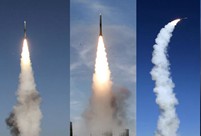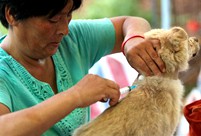


Illustration: Liu Rui/GT
Almost simultaneously, three terrible attacks occurred in three different countries and killed dozens of civilians. In France, an attacker stormed a chemical plant and beheaded one person. In Kuwait, a suicide bomber detonated a bomb inside a Shiite mosque, killing at least 27 worshippers. In Tunisia, a "lone wolf" wielding an AK-47 gunned down at least 38 tourists at a seaside resort.
Soon afterwards the governments of the three countries identified the killings as terrorist attacks. Later, terrorist group Islamic State (IS) claimed responsibility for all three attacks. Although there is still no proof to confirm they were coordinated, these attacks have appalled the local populations and raised difficult questions about the evolution of international terrorism and how to fight it.
Since IS seized an expanse of territory in Iraq and Syria and proclaimed itself a caliphate one year ago, the global war on terrorism has met many new challenges.
Unlike its predecessors, IS has managed to found a "state," with solid soil on which it can plant its feet and rich resources to sustain its cause. Apart from this, the Salafi militants are very skilful with propaganda and instigation. It has christened its caliphate a "promised land," and painted a very encouraging picture for its followers. Through the Internet, it has developed a global communication network, giving orders and guidance to its adherents across the world.
Effective transmission of its message enables IS to incite their fanatical followers to fight for the group. What is more disastrous is that IS is inciting Islamic extremists scattered around the world to wage "lone wolf" attacks. Compared with 9/11-like terrorist attacks, lone wolves are too obscure to be identified before their attacks, making them much more difficult to prevent.
It is possible that the recent three attacks were carried out for symbolic purposes. Ramadan started in June, and June 29 marks the one year anniversary of the establishment of IS' "caliphate." IS are probably trying to send a strong signal that will resonate with their adherents. It is a powerful move to spread their ideology.
It is apparent that IS have managed to prevail in the ideological or informational war with the whole world, an achievement Al Qaeda never managed. Therefore, the really terrifying part of terrorism does not lie in IS' military success, but in its ability to mould minds in faraway and peaceful countries and make their territory the next frontline.
The world is still not prepared for the evolving nature of international terrorism. A lot of countries still focus their strength and resources on physical engagement with terrorists and have ignored the fact that, like a hydra which will grow more heads when you remove one, a terrorist might be physically destroyed, but his ideology can still spread and create more terrorists.
Therefore, the ideological or informational war is now a major theater in the war on terror. The key to winning the war is to destroy the things that push people toward militancy, which might be indistinct in our societies but are exploited by terrorists. Within a society, issues such as social inequalities, educational problems, ethnic and racial tensions are making parts of various disadvantaged populations into potential reserves of terrorists.
From a wider perspective, the geopolitical game and feuds between different nations have bred frictions inside the anti-terror forces, whose strength and unity continue to be compromised.
The article was compiled by Global Times reporter Liu Zhun based on an interview with Mei Jianming, director of the Anti-terrorism Research Center of the People's Public Security University of China.
 4-year-old cute 'monk' spends summer holiday in temple
4-year-old cute 'monk' spends summer holiday in temple College graduates shining on the red carpet in Nanjing
College graduates shining on the red carpet in Nanjing PLA soldiers launch guided missiles in confrontation exercise
PLA soldiers launch guided missiles in confrontation exercise One woman’s fight against dog eaters
One woman’s fight against dog eaters Beautiful and smart - post-90s college teacher goes viral
Beautiful and smart - post-90s college teacher goes viral Top 10 luxury houses in the world
Top 10 luxury houses in the world  National Geographic: best photos during journey
National Geographic: best photos during journey Couples who engage in meaningful and deep conversations are happier
Couples who engage in meaningful and deep conversations are happier Maldives resort rated best hotel of 2015
Maldives resort rated best hotel of 2015  Gay marriage ruling will leave deep legacy
Gay marriage ruling will leave deep legacy Chinese Premier attends China-EU leaders' meeting
Chinese Premier attends China-EU leaders' meeting The road to tennis triumph
The road to tennis triumph New PLA campaign targets new recruits: Navy
New PLA campaign targets new recruits: NavyDay|Week